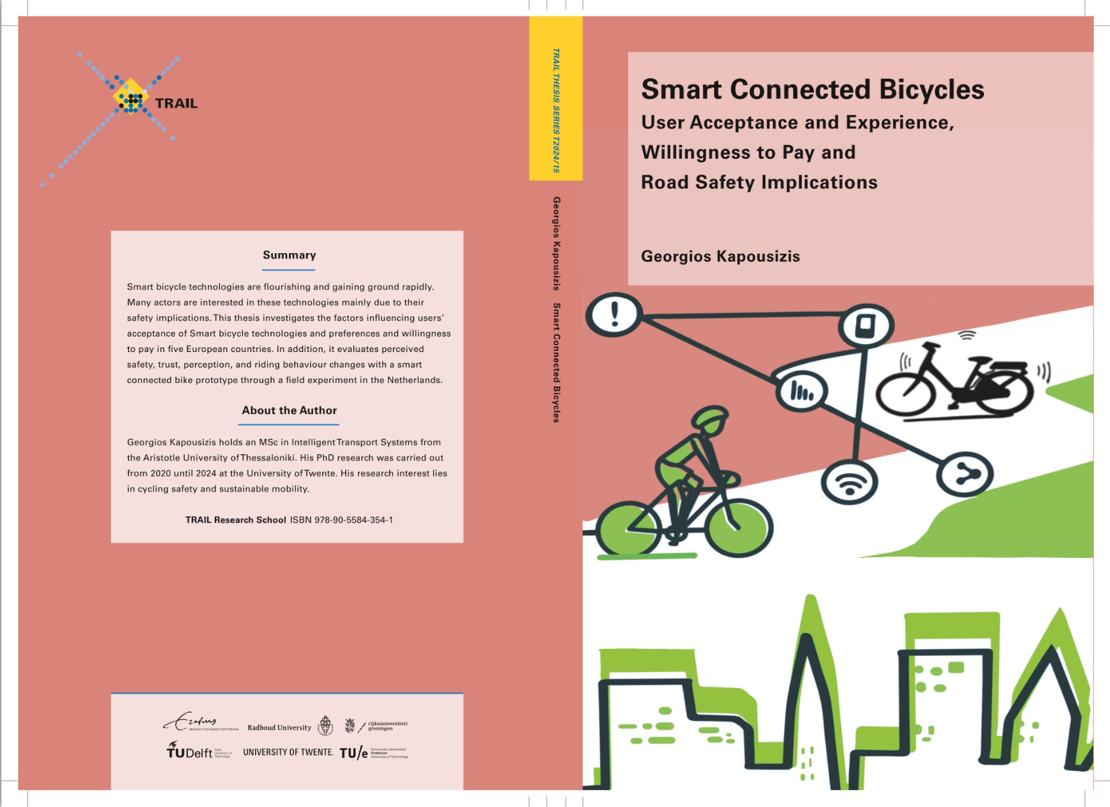Smart Connected Bicycles: User Acceptance and Experience, Willingness to pay and Road Safety Implications
Candidate: Georgios Kapousizis, PhD
The number of people using bicycles is increasing every year, and the COVID-19 pandemic has led to an even bigger increase. This is good news since cycling can in general increase sustainability and reduce transport emissions and congestion in cities. Cycling also has health benefits, especially for conventional bicycle users. During the last decades, there has been a burst in e-bike use. E-bikes have an ever bigger contribution to transport emissions and congestion since they can replace motor vehicles for short trips. Due to their motor assistance, people can cycle further with less effort. This has resulted in an increase in e-bike sales and use in many countries, including the Netherlands. Their popularity is growing rapidly, particularly among commuters and the elderly, however, this increased use of e-bikes comes with an increase in vulnerability. More specifically, in the last years, there has been an evident increase in cycling crashes, often including e-bikes. Smart connected bicycles could be the next revolution in the urban road transport field since they could offer users an alternative transportation mode that brings all the positive characteristics of a(n) (e-)bike, such as easy accessibility to the city while increasing users’ safety. This thesis evaluates the impacts of smart connected bicycles on users’ acceptance, preferences, and willingness to pay. In addition, users’ experience with a smart connected bike prototype is evaluated through a field experiment. A smart connected bicycle is an e-bike integrated with sensors and various systems, such as telecommunication technologies, which is connected to the urban infrastructure through wireless technologies to increase cyclist’s safety and comfort. Therefore, fulfilling its overarching aim, this thesis examines bicycle technologies affecting cyclist safety and investigates factors that influence users’ preferences for accepting smart bicycle technologies across different European countries. It also investigates users’ preferences for individual technologies and estimates willingness to pay values for these technologies in Europe and in the Netherlands. Individuals' perceived safety, perceptions and riding behaviour changes are also measured in practice with the use of a specific set of smart bicycle technologies through field trials in the Netherlands.
